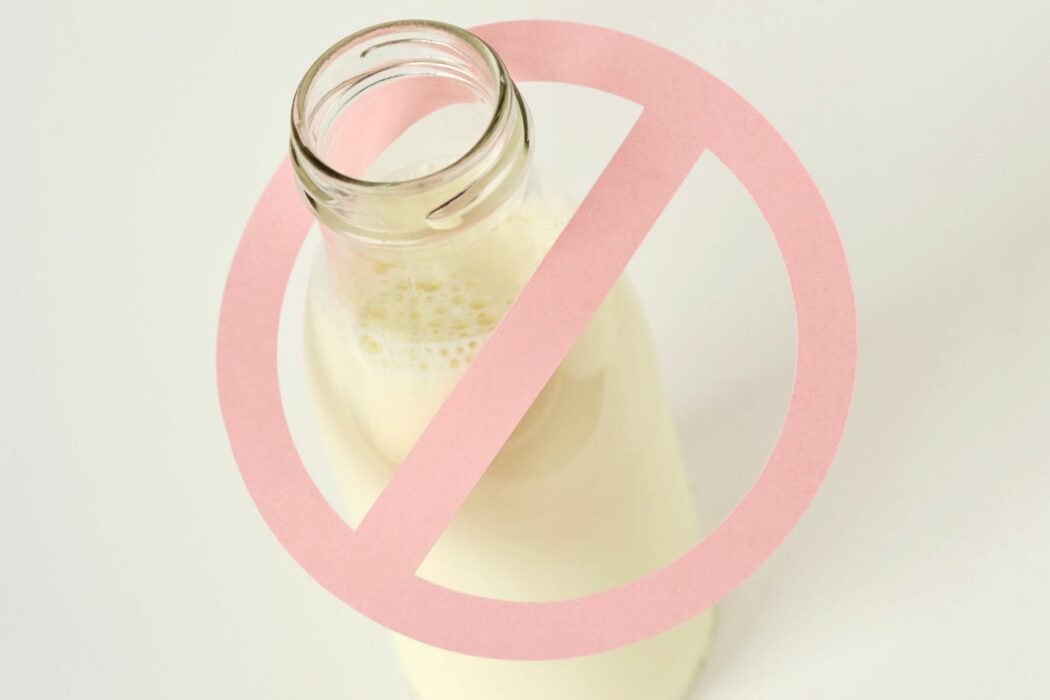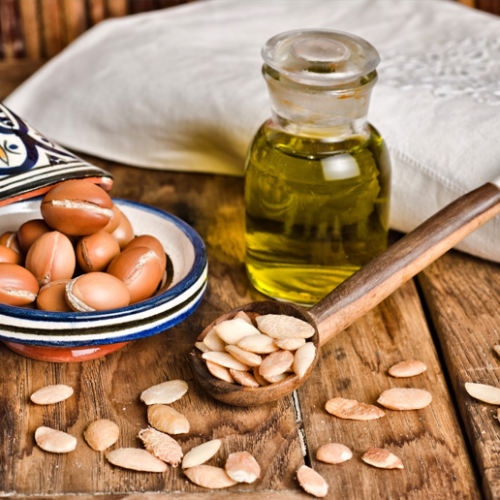Living with lactose intolerance
We explore what life is like with lactose intolerance and how the new range from Al Ain Farms could help adults and children alike who suffer from this condition.

Lactose intolerance is the inability to properly digest the sugar (lactose) found in cow’s milk and all other dairy products made from cow’s milk. It is caused by producing too little of an enzyme called lactase in the small intestine. Some people will have lower than usual amounts of lactase but still be able to digest a certain amount of dairy without problems. However, once this tolerance limit is reached during a meal, you may begin to struggle to digest dairy. This results in a variety of symptoms that begin normally between half an hour and two hours after eating foods containing lactose. These symptoms can commonly include:
- Diarrhoea
- Nausea and sometimes vomiting
- Stomach cramps
- Bloating
- Gas
In most cases, people who become lactose intolerant begin life making enough lactase naturally. Infants, who rely fully on milk for all their nutrition, need lactase. As little ones grow and start substituting milk with various foods, the level of lactase they create falls, but usually stays at a high enough level to digest the dairy products often found in an average adult diet. However, for most people with lactose intolerance, their lactase production lowers dramatically by their early twenties, making it very challenging to digest milk products.

Secondary Lactose Intolerance
Sometimes, an injury to the small intestine can lead to the development of lactose intolerance. This can be in the form of a physical injury, illness or certain types of surgery. Conditions that have been linked to secondary lactose intolerance include digestive disorders like Crohn’s disease, celiac disease, overgrowth of harmful bacteria in the gut and some internal gut infections. It’s also possible to be born with lactose intolerance, although this is rare and is generally prevalent within the family already.
WHAT ARE THE RISK FACTORS?
There are a handful of factors which predispose a person to becoming lactose intolerant, more than the rest of the population. Although it is good to note that not everyone in these groups will have this intolerance. These factors include:
- Age: it is less common in babies and children
- Ethnicity: people of African, Asian, Hispanic and American Indian descent are more at risk
- Premature birth: the small intestine develops its lactase-producing cells in the third trimester, meaning babies born early are at risk for this intolerance
- Illness and disease affecting the small intestine
- Certain cancer treatments for the stomach or intestines
LACTOSE INTOLERANCE IN THE UAE
Al Ain Farm commissioned a survey investigating lactose intolerance for the launch of their new Lacto Free Dairy range. They made some surprising discoveries about lactose-intolerant living in the UAE. These findings include the fact that:
- Most people discover they are lactose intolerant in their early twenties
- Moving to a lactose-free diet improves quality of life – with better sleep and more energy
- There is a high demand for more lactose-free products – with nearly a third of people in UAE demanding more options
- The average UAE resident has at least two friends with lactose intolerance
- People generally want better guidance and education around lactose intolerance
PEOPLE WANT MORE OPTIONS

Data gathered by Al Ain Farms shows a high demand for lactose-free options in the UAE. Its study of more than 1,000 people across the UAE also revealed that people are being diagnosed as lactose intolerant relatively early on in their lives and want more options available in hospitality venues and supermarkets.
Why options are necessary
People with a lactose intolerance are unable to digest lactose, the naturally occurring sugar in regularly produced milk. Unfortunately, there’s no cure for lactose intolerance and it can negatively impact daily life in a whole host of ways for those that suffer with this intolerance. Lactose-intolerant people have to think carefully about where they eat out, as well as choosing what to eat and drink at home.
Negative effects
Nardeen Turjman, Clinical Psychologist at the German Neuroscience Center, adds that ‘studies show us that food intolerances may affect almost any system in the body. Individuals with food intolerances commonly report its effect on mood, thoughts and energy levels. If not treated and managed properly, it will most likely result in lower physical functioning and play a role in social limitations and daily activities.”
Lactose-free dairy products
Saja El Masri, a registered dietician at Novomed, says “The number of people who have intolerances is getting higher and higher. We recommend our patients shift to lactose-free milks and cheese or other alternatives. As lactose intolerance is becoming so common, having lactose free options is very important so that everyone can have options and still maintain good gut health.”
The taste of real dairy
On a much smaller level, it can be difficult for people, especially kids, to give up the milk they are so used to when they are diagnosed with an intolerance. Al Ain Farms understands that people with lactose intolerance should still be able to enjoy the taste of delicious milk and live life to the fullest. The new range allows you to keep the nutritional and taste benefits of dairy, without the discomfort associated with lactose intolerance. The new Al Ain Farms Lacto Free Dairy range promises the same great taste as the regular range so lactose intolerant adults and children don’t have to compromise on taste. The range includes fresh milk, long life milk, fresh yoghurt, and laban – all full fat, which is more nutritionally dense and is recommended for kids.
WHAT IS LIFE LIKE WHEN YOU’RE LACTOSE INTOLERANT?
As part of the launch of the Lacto Free Dairy range, Al Ain Farms wanted to know what life is really like being lactose intolerant. The brand commissioned research to understand the lives of those with lactose intolerance. The realities of lactose-free living in the UAE are surprising. Here are some of the effects.
Worry around eating with others
Nearly half of young people with lactose-intolerant symptoms worry about eating with friends and family as the symptoms can be debilitating. The most reported symptoms include stomach rumbling, a bloated stomach or stomach cramps – with women more likely to experience this than men.
The worry about consuming dairy products has an impact on daily life, with almost half of 25 to 34 year olds feeling concern around enjoying meals with friends and family. What’s more, 31% are having to spend more money on lactose-free alternatives, which aren’t always readily available.
Intolerance comes to light early in life
Most people discover they are lactose intolerant in their early twenties. Lactose intolerance isn’t always something that shows up in childhood, although it can do and so it’s a good idea to observe your child’s reactions to dairy products. Most people discover they are lactose intolerant as young adults, around the age of 23.
In the survey, a small percentage of people (15%) realised they were lactose intolerant after 2-3 weeks of experiencing symptoms, 13% after one week, and 13% after 2-3 months. On average, women found out earlier than men (22 years old and 24 years old respectively).
The survey found that on the whole, the younger people are, the more quickly they are diagnosed after initially experiencing symptoms. Older people often took longer to realise – on average over four months after first noticing their symptoms.
The impact on sleep and digestion
Nearly half of people sleep better after changing to a lactose-free diet. It can be difficult to live with any allergy or intolerance. Identifying lactose intolerance and making changes to diet has a vast improvement on quality of life for many people. Almost half of people report that they have better sleep and a better digestive system after switching their diet. Men appear to notice a greater impact on sleep than women, but only by a small number, while women tend to feel improvements in bloating compared to men.
Brands need to be more aware
One-third of people think food brands don’t cater well enough for lactose intolerance. Many people know at least one person who is lactose intolerant and understands how it can affect their lives in a variety of ways, including where they are able to dine out. This can present social obstacles and awkwardness which can negatively affect people’s self-confidence.
Almost one-third of people think food brands don’t cater well enough for lactose intolerance, which suggests a high demand for more options at supermarkets and convenience stores.
There is also a demand for better labelling – the majority of everyone surveyed believe lactose information should be more abundant on product packaging. Many people also want more guidance from healthcare professionals and better education around the issue.
Lactose-free milk is in demand
When asked which lactose-free alternatives they prefer, the most popular was almond milk, closely followed by lactose-free dairy milk. Nearly half of respondents said they would drink lactose-free milk if they had more information about the benefits and if it was clearly labelled. Women in particular want lactose-free milk in retail settings, such as supermarkets and other shops.
AL AIN FARMS’ NEW LACTO FREE DAIRY RANGE
Al Ain Farms are leading the way in lactose free options in the UAE. The new Lacto Free range has been created with the growing lactose-free community in mind, providing the same great taste as the original range but without the lactose.
Al Ain Farms’ Lacto Free range includes four products:
- Full Fat Fresh Milk 1L
- Full Fat Long life Milk 1L
- Full Fat Fresh Yoghurt 400gr
- Full Fat Laban 400gr
Hassan Safi, Al Ain Farms CEO, said: “At Al Ain Farms, we’re proud to have supplied the UAE with fresh products, made locally with love for over 40 years. Our new Lacto Free Dairy range champions our mission to make the great taste of dairy available to all consumers, without compromise. That’s why our new lactose-free recipes have been tried and tested to ensure the superior taste and quality standards we are known for.”
As more products, such as this range, become available, people living with this intolerance in the UAE should see a great improvement to their options and therefore their quality of living. If you suspect you, your child or your teen may be suffering from this issue, be sure to visit your doctor for advice.












Comments